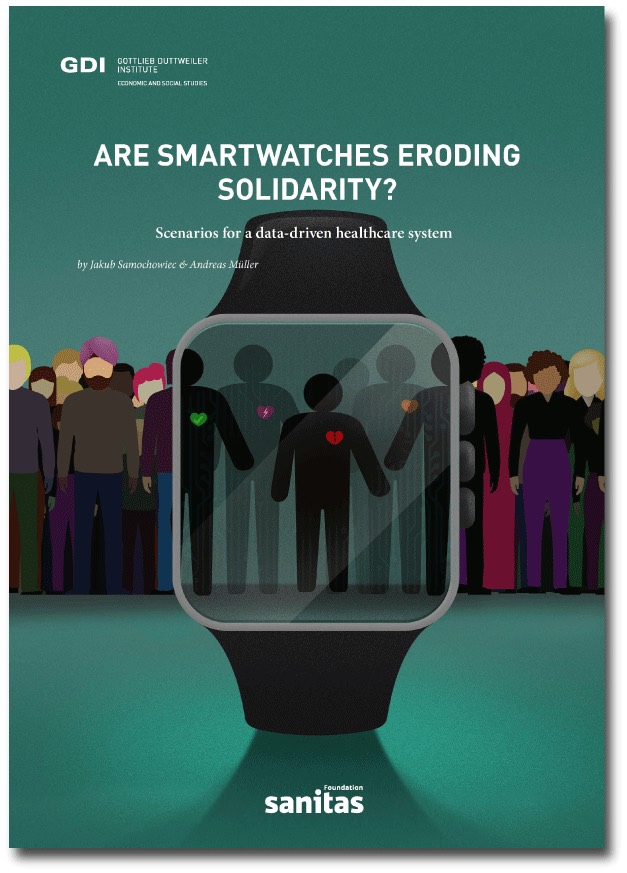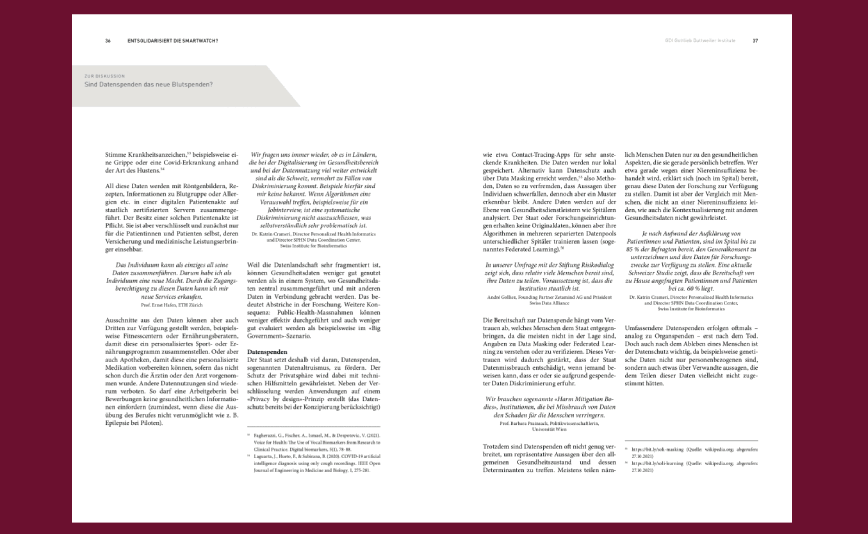Are Smartwatches Eroding Solidarity?
Scenarios for a data-driven healthcare system
Authors: Jakub Samochowiec and Andreas Müller
Commissioned by Foundation Sanitas
Languages: German, French, English
2021
Datafication in the healthcare system
Gene sequencing, pedometers, smart blood pressure monitors – our health is increasingly translated into numbers. This datafication not only promises better prognoses of health trajectories, it also enables more control of behaviour. But how does this new transparency affect the solidarity principle of healthcare, i.e. the principle according to which the contribution payments of individuals are not made dependent on their state of health or behaviour? This is not a question of technology alone, but also of social decisions. What conditions does a society impose on individuals to be allowed to benefit from this solidarity? If these conditions are strict, the new health data are likely to be used for control: Are people behaving properly? If, on the other hand, solidarity conditions are designed to be tolerant, health data are more likely to be used to enable individuals to lead lives that are as healthy as possible. The study outlines four extreme scenarios along two axes: the “conditions of solidarity” (strict or tolerant) and the “role of government” (minor or major).
Four scenarios
The Big Government scenario describes a strong government with strict conditions for solidary support. People have to share their health data and are urged to adopt healthy behaviours. In the Big Self scenario, the aim is to empower individuals without patronising them. Although government also plays an important role, it limits itself to regulating the use of data and facilitating healthy behaviour.
In the Big Business scenario, on the other hand, people with similar health profiles join together in risk pools. These risk pools require the disclosure of data in order to exclude unfavourable risks. The disclosure of data is also central in the fourth scenario, the Big Community scenario. Here, this is done out of voluntary solidarity, however: Individuals share their data without demanding “healthy” behaviour from others. Rather, the diversity of the data is seen here as a strength that enriches the data model, making it more robust.
Equivalents in the COVID-19 pandemic
Although the four scenarios are set in the future, the underlying logic can be illustrated by how the COVID-19 pandemic is handled. For example, governmental control as in the Big Government scenario manifests itself in mask and certificate mandates. In contrast, the demand that unvaccinated people should pay for their own hospital treatment reflects the logic of the Big Business scenario. Measures that correspond to the Big Self scenario are informational campaigns or contact tracing apps that do not store data centrally. The Big Community scenario, in turn, finds its counterpart in the demand to release patients for COVID vaccines.
German: http://doi.org/10.59986/HXDG2896
Deutsche Zusammenfassung
Französisch: http://doi.org/10.59986/XJJQ2019
Résumé français



